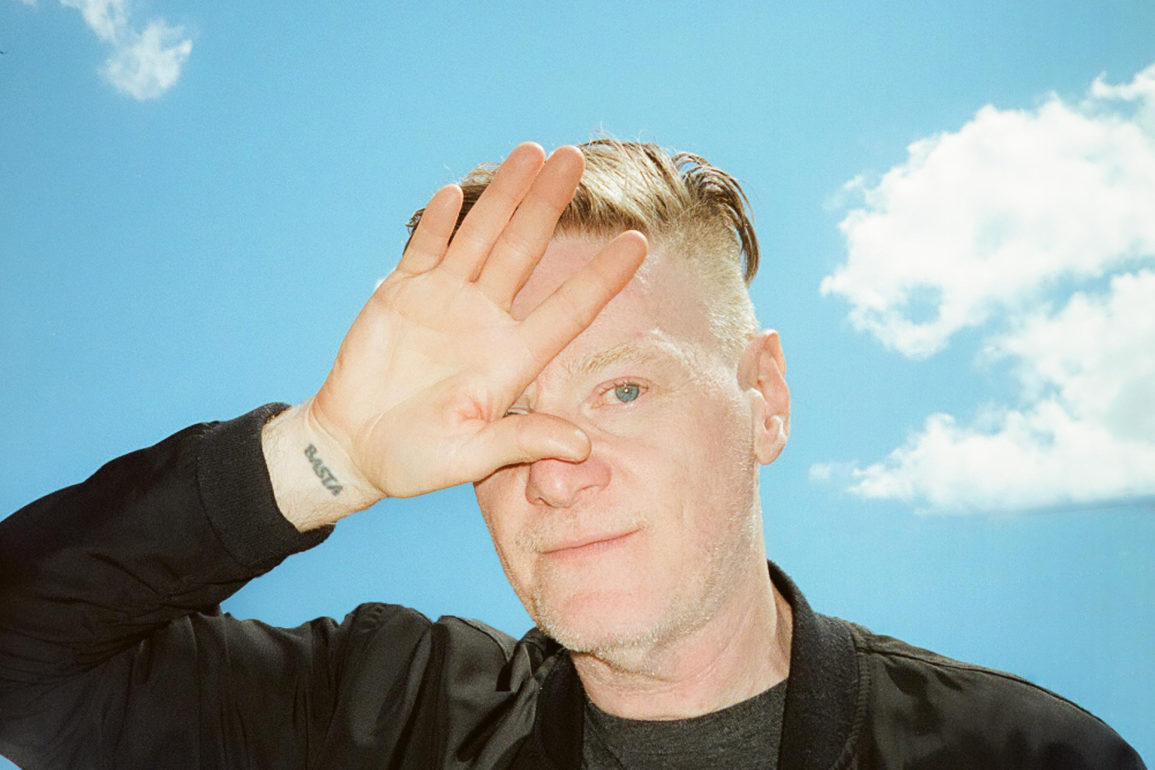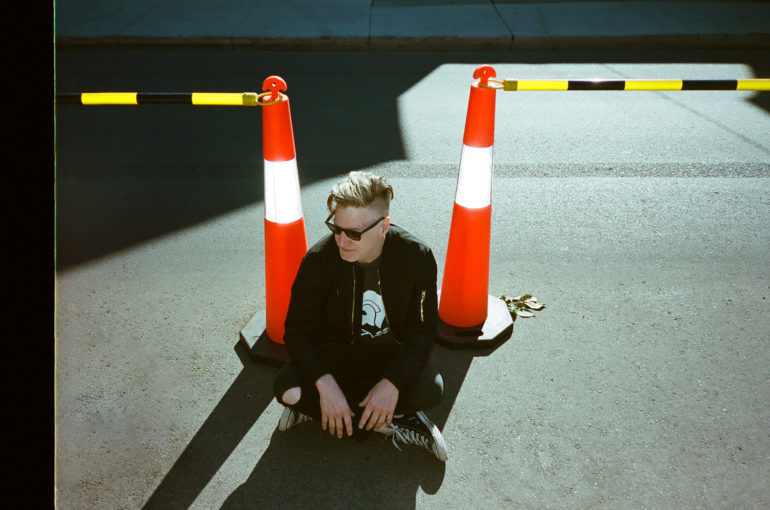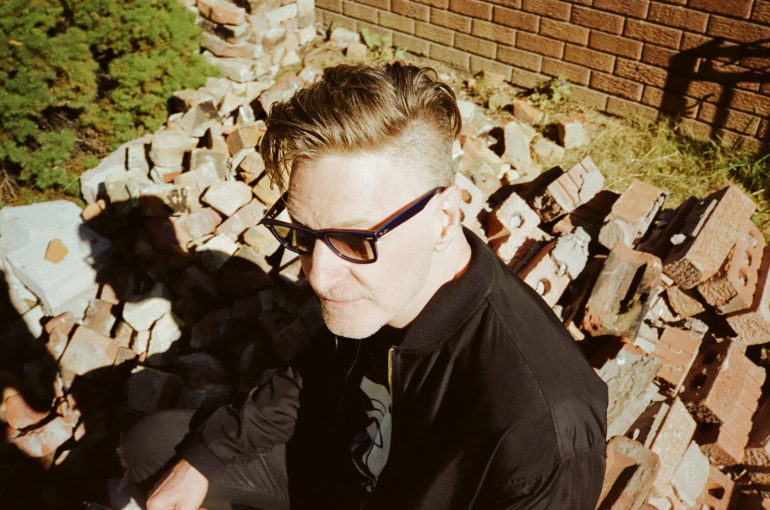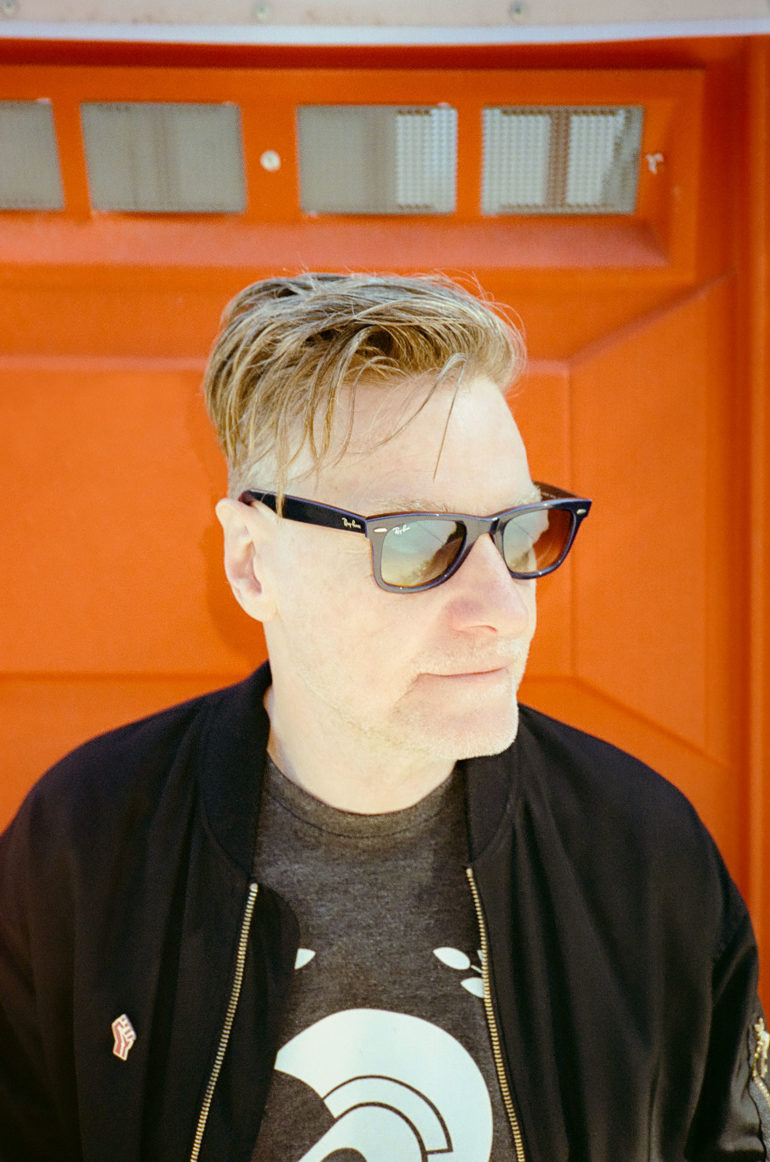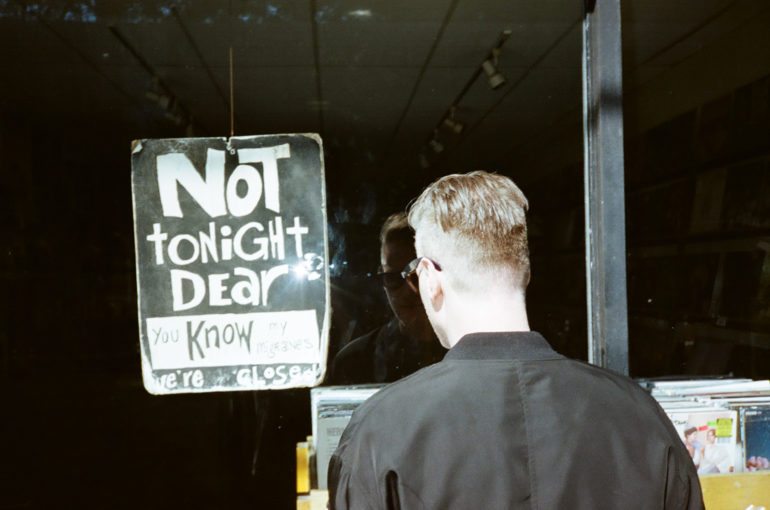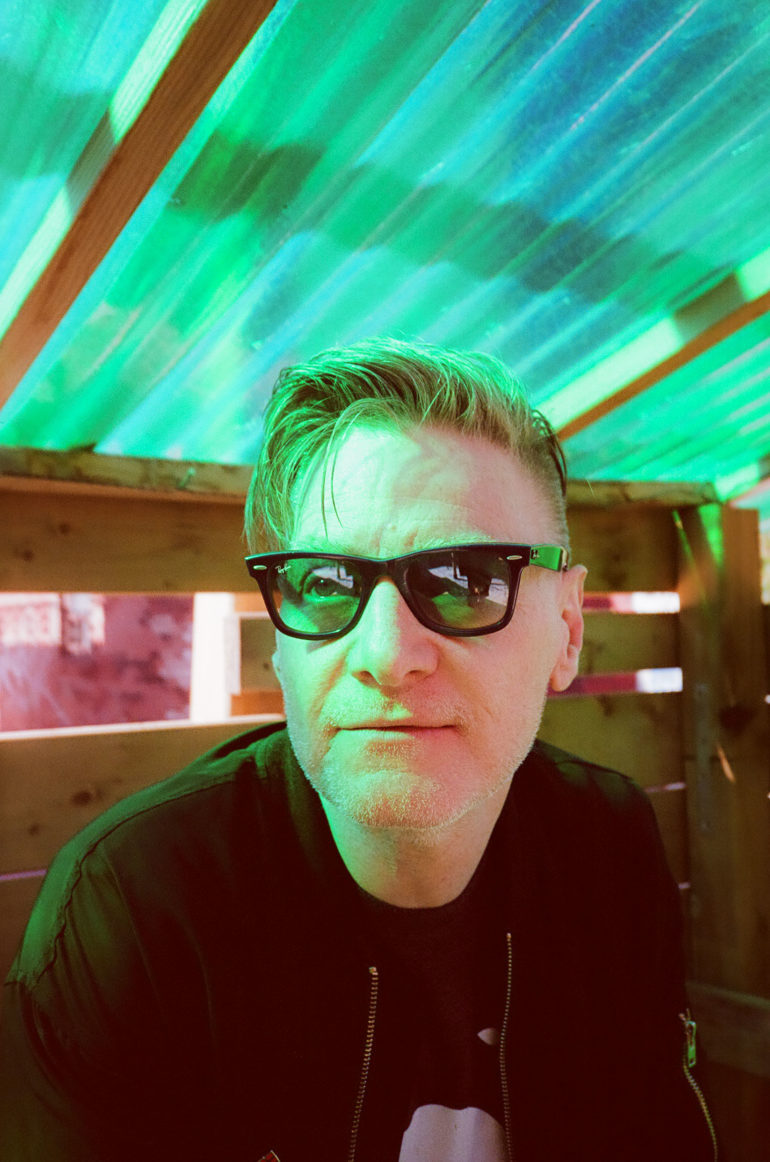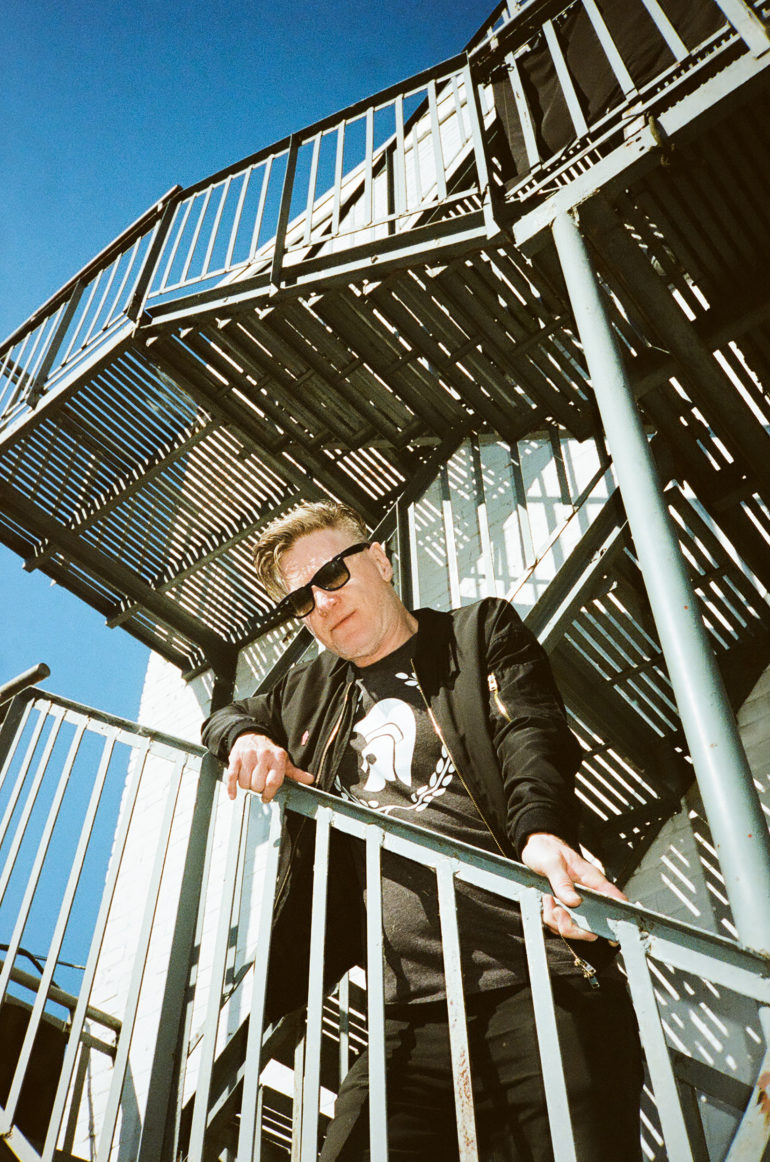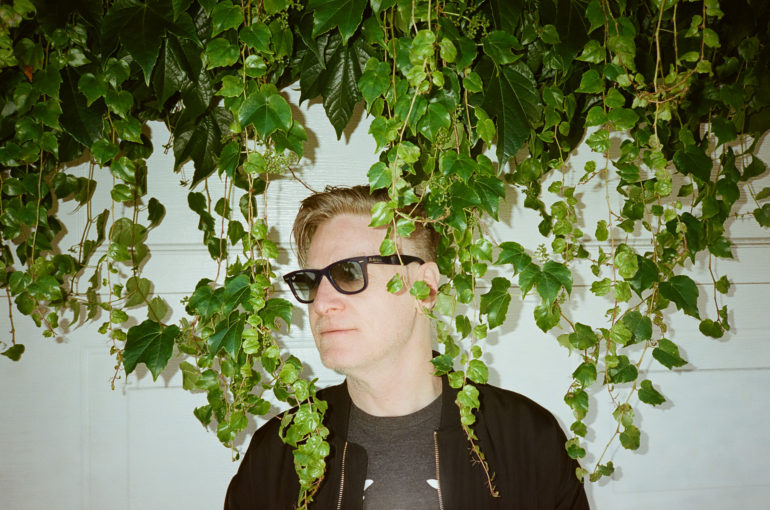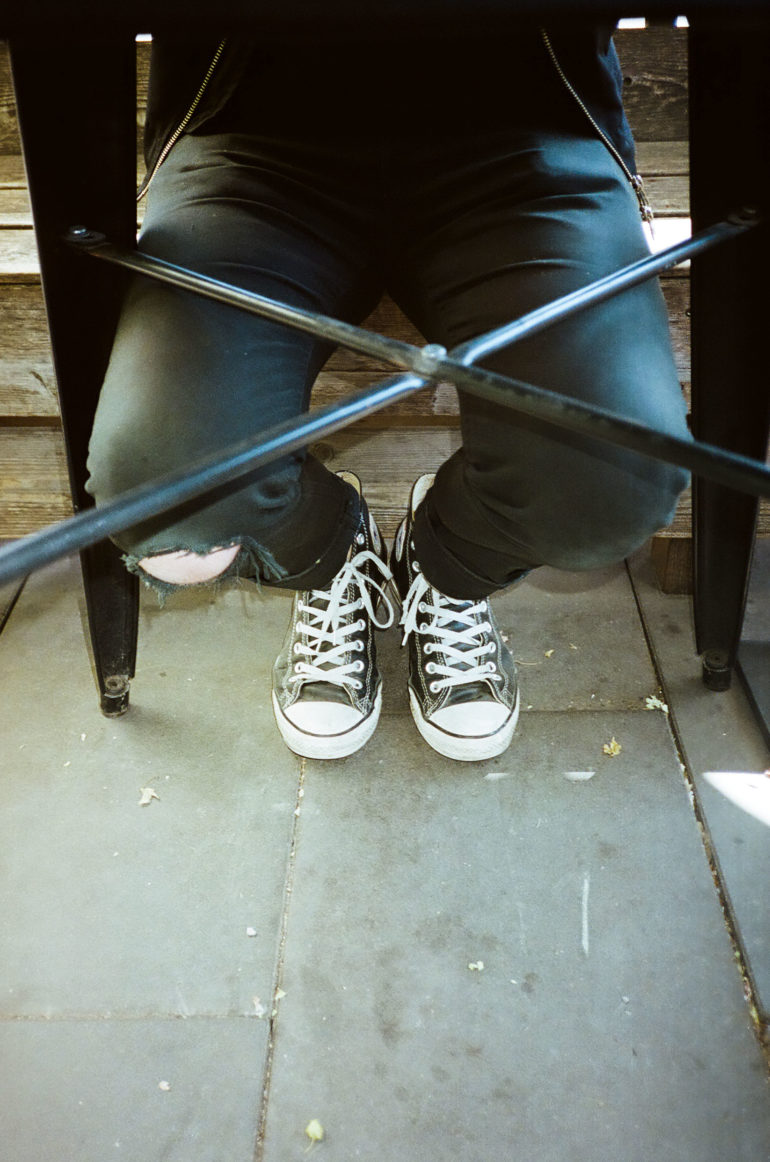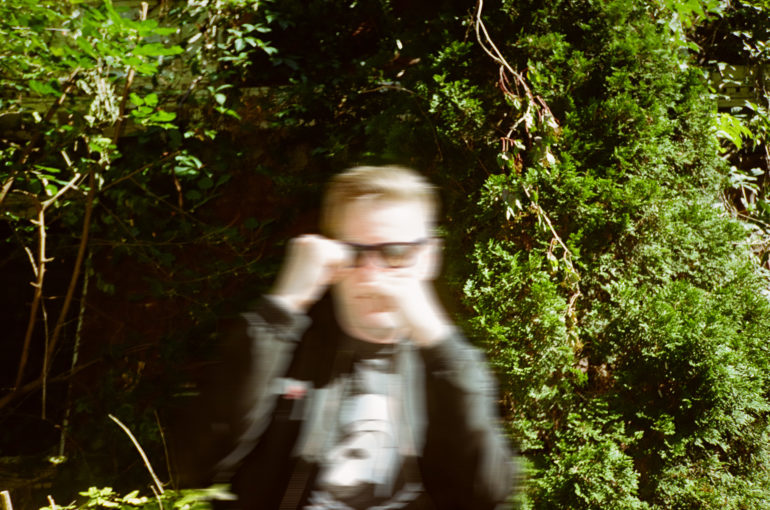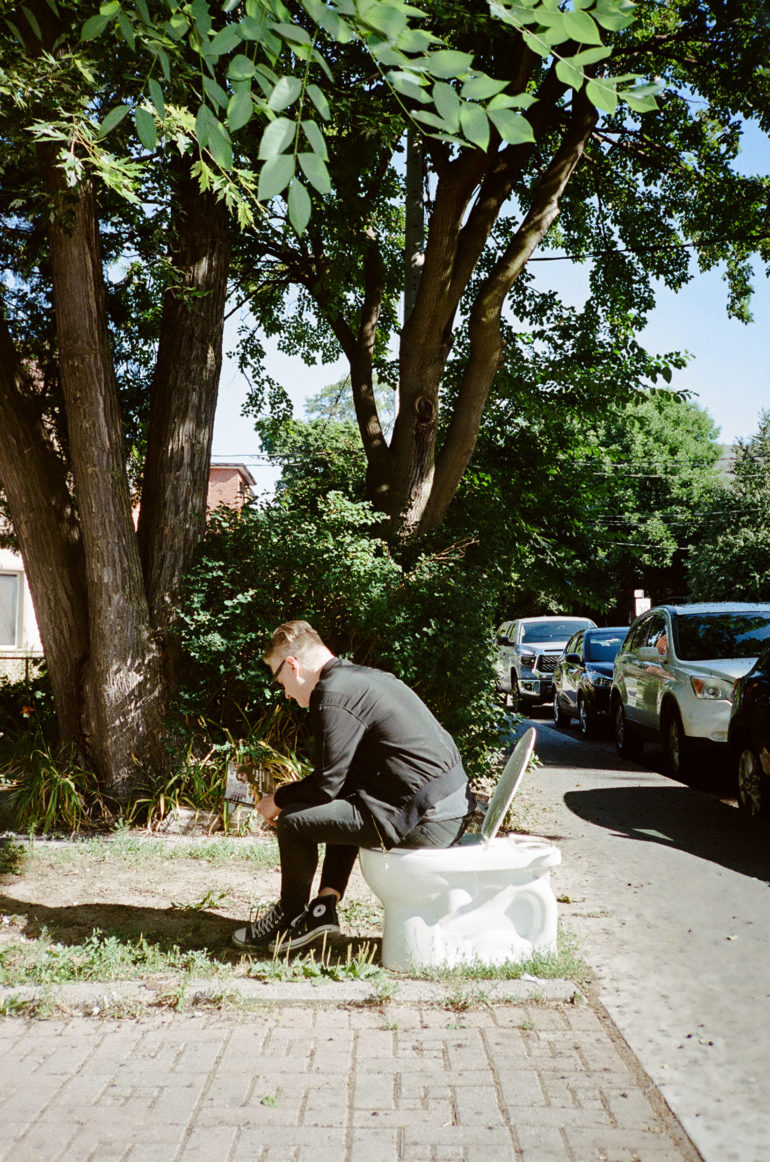If I was putting together a soundtrack of my youth, somewhere near the top of the list is Lowest of the Low and their debut album Shakespeare… My Butt.
Like many people, my introduction to the Low would’ve been via CFNY, Toronto’s “alternative” radio station. Like KROQ in LA or WLIR in NY, CFNY were always ready to give something new a chance and in 1992, it was Lowest of the Low. At the time I was playing DJ at a local bar and made it my mission to buy their CD so I could play it for the 50 or so people that showed up to hear me force-feed them whatever I was in the mood to hear that particular night. Surprisingly, I don’t remember where I eventually found it, but I ended up with a copy, and every night I would play a couple of songs from the album—a singalong for the crowd like Salesman, Cheats & Liars” or “Henry Needs a New Pair of Shoes” and something for me like “For the Hand of Magdelena” or “The Taming of Carolyn.”
The Shakespeare CD followed me everywhere—it would leave the DJ booth and go to the car, then leave the car and come into the apartment where I would put it on and strum my guitar to its 15 songs—I probably should’ve bought a second copy, but I was broke, so one would have to do.
When the lineup for Edgefest 1993 [a music festival hosted by CFNY] was announced, I immediately bought two tickets—one for me and one for my girlfriend, and on July 1 we jumped into my Volkswagen and made our way to Toronto. We arrived at Ontario Place, parked and made our way to the gate. Over a dozen bands were playing and the lineup was ridiculous: Rheostatics, The Waltons, The Watchmen and of course, Lowest of the Low. As we walked past some people, my girlfriend casually asked, “Was she pretty?” Here we go again, I thought. This was an annoyingly common, and undeserved question. I stopped and asked her to point out which girl she was referring to. “Never mind, I thought you were looking at the blond girl.”
“I wasn’t,” I answered, “but yes, she is pretty.” Knowing this would make her angry, I probably should have crafted a different answer but I didn’t care. I just wanted to get inside to watch the show. I figured she’d give me the silent treatment and I was willing to accept that. What I hadn’t anticipated was full out argument ending with, “I’m going home,” and me watching her stomp away. What she hadn’t anticipated was that my love for the Low was was a lot stronger at this point, so I turned around and continued walking, through the gate, and took my place on the lawn to watch the show.
I eventually made my way back to our apartment. To this day, I have no idea how she got home and it doesn’t matter. We broke up Christmas Eve, and I sent some friends to pickup my things on Christmas Day. She sent everything except a pair of mustard coloured pants and my very used copy of Shakespeare… My Butt. A few weeks later, I received a letter in the mail. The lyrics to “Subversives” in her handwriting. “And we’ll drink but not to forget but to remember instead all our happy years.”
Recently I heard a Paul McCartney interview where he was asked if he thought 2020’s McCartney III was “the best thing he ever recorded”… his answer was, “you know I was in the Beatles?” In your case, you’ll fight anyone who doesn’t think Agitpop is the Low’s best album…. if I put my nostalgic feelings aside, I may agree…
Yeah. Well, I always say that Agitpop is probably the Lowest of the Low’s finest hour—fight me. I feel like it’s a real companion piece for Shakespeare…My Butt, Right down to the cover. When we were finished making it I was like, “Hey, is it a weird subconscious coincidence that it’s sort of manila coloured with burgundy red in it, just like Shakespeare…?” I feel like it’s almost like a bookend, you know, because a lot of the same concerns, the same obsessions with people, and stories of people are in it. It’s a more mature record and I think it nails the kinds of things we wanted to try on Shakespeare…My Butt, but in a better way.
Some of the songs are pre-Low?
Yeah, two of the songs were written in 1988. I think it’s both exciting and sort of existentially disturbing, that they’re still relevant, because they’re political songs about this tip towards the right. Not like that wasn’t going on under the hood for all these decades but I mean, it’s obviously coming to the forefront again. So yeah, that kind of disturbs me, but artistically it’s pleasing that you bring something back that’s that old and it’ll still be relevant.
Well, it’s like our article on protest songs from the last edition, where you, of course, were mentioned alongside Bragg, Lennon, Strummer and a slew of other shit disturbers…One of the things that I wrote was, how many of these songs are still relevant today when they shouldn’t be—they were written in the 60s in the 40s, 20s. Right?
I was very honoured to be on that page with those people. I’m sure the people who write them probably would hope that, if they had their druthers, “I hope the song is irrelevant in 30 years,” because they would probably rather live in a world where those things aren’t true, that have their songs on the charts or whatever.
Your father is a classically trained pianist, but your music school was in the back of your uncle’s station wagon?
Yes, literally. It could be said that, musical education happen in a lot of different ways. My dad is classically trained, as I say, so he’s come through the whole Western history of musical development—the way it’s charted, the way it’s tabulated and everything. I’m always saying to him, that the vast majority of the world works in a folk tradition, wherein, it’s not that they don’t have an education, it’s that their education comes from their aunts and uncles and moms, sitting around the kitchen and sitting around the fire. That said, my dad, being a classical musician, I certainly got the benefit as a kid of having that around me, whether or not I took part in it and learned, officially, I was learning all the time. What I’ve learned is, I have a good ear, and I’m interested, so that combination means I’m bringing it in like a sponge all the time. So when my dad’s playing classical music, that’s all going in there, and I’m learning those forms, even if I don’t know how to write them, you know. And then as I was telling you, driving to the cottage with my aunt’s, and uncle’s singing Beach Boys songs, and all of us trying to sing different harmonies, that’s a real education because you’re just listening and you’re learning how the structures are made. So all of that is just an informal education in my book. It goes in there, and then you have a hard drive full of other people’s ideas, then you start writing your own ideas, which tend to start off as bad copies of other people’s things. You get better and more sophisticated at hiding those things.
Right out of the gate you record Shakespeare… My Butt and it gets serious attention. It must’ve been tough to follow that success.
Yeah. Well, it was surprising because we tried to get signed by every label in Canada. Everybody thinks that we just came out of the gate as committedly indie, and we get these labels put on us, like, “local freedom fighters” or “indie freedom fighters.” We tried to get signed, and nobody in Canada would touch us. The DIY thing was in us anyway, because we all came from punk rock, and it was like, “Okay, well, I guess we put this out ourselves and see what happens.” We didn’t have any other responsibilities so we weren’t thinking, “What if it doesn’t fly?” We thought, “We’re gonna play anyway, so we just continue to play shows and we sold these records. I think we sold 7,000 of them at our live shows, which was huge in those days for an indie band. Then all of the record labels called us back. We already sort of felt these kinds of vibes, but it was one of the first times we were like, “You know, what? Fuck this. Now, they come grovelling back to us because we’ve already done the work.”
Now, you’re just handing over your money.
Exactly. You just want to put your hand in my pocket. In the day, they could say “Well, we have a farther reach,” now they don’t—you can’t reach further than the Internet. So Shakespeare blew up and we were as shocked as anybody. Not because we weren’t confident but just because we thought, nobody in the industry wants this… but we know we had a grassroots crowd that loves it and maybe that’s who we are. It’s one step above busking on the street, and we’re cool that. All we need is some beer and a place to flop. Then as more people are into it, and you start to understand the worth of what you’ve created, you start to expect more from it and, maybe we want to make better records.
For me, that was a great time in Canadian music. Were you guys the spark that pushed the labels to hunt down all those bands?
The conduit was Dave Bookman at The Edge, 102.1. Suddenly this confluence of things came together—for the first time in history, it became doable for a band to make their own CDs. They were not new but they were still generally out of reach. We were able to take advantage of that and then somebody like Bookman would find people like the Barenaked Ladies or us and play us on a major radio station. That door was open, and we got the advantage of it. It’s one of those things where we worked really hard, and we were talented but we also had a massive good fortune of being in the right place at the right time because even that window at The Edge, I feel closed by 95 or 96.
Some of your poems come from true life stories—“Kung Fu International”, “36 Hours”… do they all come from there, or are some simply works of fiction?
Well, you know that, they’re true life stories, but they didn’t actually happen to me, to be honest. You know, very little of my stuff is actually a direct response to something that happened to me personally. I think if you’re a poet, what’s second nature, in order to get an angle, is you have to be an adopter of positions.
There doesn’t seem to be anyone doing that in radio today… maybe I’m wrong.
I mean, the Indie88 claimed the mantle of 102.1 but that’s not what they’re doing. Sometimes I can’t tell it apart from Virgin FM.
Today, we consume music differently—radio is no longer the primary source for discovering new music, streaming services have taken over. Do you think it’s easier or harder for a new band to get noticed today.
I think it is and it isn’t. I think it’s a great opportunity to have people discover you. If your friends are sharing their playlists with you or you wind up on other people’s playlists, I think it’s a great way to find things you don’t know about that are cool. There’s so much amazing music being made. I would say, there’s probably more amazing music being made now than there was when I came up in the 90s, just due to the fact that there’s more people doing it and there’s more outlets for it. The problem with it is, the democracy that we were all begging for in the 90s—to get rid of these six taste-makers, who held the purse strings. Then we got democracy, and it was like, be careful what you wish for, because now the listening audience is so splintered into niches. It’s a great thing on one hand, because if you like Persian hip hop, then you can find it and you would have had a really hard time finding it in the 90s. I love that you can find whatever you want. The thing is, there are no “water cooler shows” on television anymore; There’s no film that everybody’s going to see and they’ll talk about it on Monday because society is breaking up into niches. I just go back and forth, I don’t know what to think about that. On one hand, I think it’s incredible and it’s democratic, and it’s the way art should be consumed. On the other hand, I miss the, “Everybody’s tuning in to Get Back because The Beatles are the biggest band in the world.” That will never happen again. There will never be a Beatles, and not because there aren’t people as talented, but just because that’s not the way society works anymore. So I miss that.
I know, I miss hearing something on the radio, and then going to my local record store to hunt it down.
The other thing I missed from that, is the sort of cold flipping through the records, and then you might see something. I actually did it at Rotate This a little while ago with this band called Royal Headache. I pulled up this record, and I’d never heard of them before but I’m sure I will like this because look at this fucking record label. I took it home and I loved it. So I miss that because I think when you’re streaming, they do the, “People who like that also, like…” and they’re just siloing you tighter and tighter into a little area. When I’m painting, I might just pull up [on Spotify] “kick ass women, punk rock,” Then there’ll be 500 songs and 200 or 300 of them I won’t know, so I guess that’s the good version of that.
What does BASTA mean? [tattoo on Ron’s wrist]
It means enough in Spanish. I got it because I started taking Spanish with this painter I met in a bar. I was always kind of a hispanophile, I guess you would say. I was brought into Spanish history through the Spanish Civil War and then went to Mexico a lot, and loved Rivera, and all the painting culture, and pre-Columbian cultural. So I started taking Spanish lessons with this guy, who was this crotchety old dude originally from the Basque region in Spain. He was a drunk, but a fascinating guy—a philosopher, kind of, and a painter. I just said to him, “I’ve always wanted to learn Spanish,” and he said, “I’ve always wanted to make $20 an hour.” So, I got a bunch of my friends together and we had maybe ten people in my kitchen. Two months later, it was seven of us, and six months later, it was two of us and then eventually it was just me and Vidal. He just continued to teach me and I became very close to fluent for a while. At the same time, I had a lot of addictive substance problems and I got it here [wrist] because I was like, when I’m in a bar I’ll go, [slaps wrist]. “Let’s have a reminder that you’ve got to try to keep your life on track.” Back then, shit kind of hit the fan when my band got super popular and we wound up in that little echo chamber where everybody’s a “yes person” telling you that you’re a genius and that everything you do is great. I did every drug you can imagine and it was getting way out of hand, as it does. I know some people who have skirted it but I’ve also lost a lot of friends to different kinds of drug abuse and the lifestyle that comes around it, so I kind of pulled the plane off the runway at the last minute in the 90s. I feel like I got out by the seat of my pants and that was part of it, having that as a reminder. I’m not sure how much it helped [laughs] but it didn’t hurt.
You spent some time in Portugal, where my parents hail from. Was there any inspiration taken from our culture?
Yeah, I went there in ’89. We hit Lisbon and then we went up to Coimbra, Porto and Viana do Castelo. Coming from Toronto in the 80s, I just loved what seemed to be the very laid back pace of the places we were in, and the sensuality of the food. Going for a seafood lunch, that was a giant platter of the biggest prawns I’ve ever seen in my life, and just incredible wines in these beautiful old places, tucked away in basements.
There are memories connected to smell and I just remember the very first place, we stayed at and, in a great way, there’s this kind of musty, seaside salty smell memory that I have, and if I conjure that I’m transported back there. We went to see fado somewhere and of course, because we were just Canadian tourists, we were gonna go to some fado place that was in the “Let’s Go Europe” or some kind of travel thing that we had. We were about to go in and this little kid, who I got to think was maybe 10, was in these streets in Bairro Alto or wherever we were, and the kid grabs us he’s like, “No, no, no. Don’t go there. Come here.” So we’re following this kid, down this lane way and down another lane way, then down the cobblestone street, and then down into this basement. It was unbelievable because maybe it held 60 people and we were two of them. I have Irish descent and it’s like when we talk about my grandfather, if somebody started to sing “Danny Boy,” he’s gonna cry. There’s just no way he won’t cry. The sort of sentimentality and that deep empathy of the fado songs are similar to folk music, or Irish ballads. It’s people’s music. They’re about things that don’t change, sometimes they’re about politics, but they’re generally about much more foundational things about humans that don’t change, like love and compassion and community. We had this incredible time. One of those times where you stumble out of there at whatever time, you get back to your room you think, “Did that happen? You saw that little kid, right?” That might have been three or four days into our trip, so wired the way I am, and as a storyteller and a songwriter, I just was in love instantly. That was Lisbon, which was, cosmopolitan. I was just an East End kid who hadn’t traveled that much and I had the all the biases that you get as a little a working class kid in Toronto, which is that, I didn’t really expect Lisbon to be as cosmopolitan and developed as it is, but of course it is, it’s way older than the place I come from.
Then we went up the shore and we wound up in Coimbra and just that the vibe there—the university town and the palpably socialist, sort of Marxist sensibility—of course spoke to me because I was raging Marxist teenager. Everywhere I went, there was something for me—it seemed tailored to the things I love. Then I came back and then in the mid 90s, I was trying to write a novel. A lot of it took place in Portugal. The idea was that it was about this guy who makes his bed and has to lie in it… and there’s a lot of drug culture and political intrigue. He runs away from his life in Toronto, and he goes to Lisbon figuring he’ll just get away from it, but of course he just resets up the exact same dynamics in Lisbon that he had in Toronto and tends to find that you can’t run away from yourself. You have to deal with the issues, because they’re inside you, and you’re going to take them wherever you go. There were snippets from my own life, and snippets from the political culture that I had grown up with. I had known this guy who was a wealthy lawyer, who was collecting these skinhead kids and making, in his mind, a little army. I think he thought he was going to have a political revolution in Canada with this little army of skinheads. Kind of like a cult that he was creating, on the far left. So that came up as a character in that novel. I read “The Lusiads” because I thought you have to go back to Luis de Camões—if I’m going to write about the place that I should know what I’m talking about. Then I got sidetracked from it for a while and then when I came back, I just had that thing where I just couldn’t get back inside it, so it just sort of languished.
I guess I could sum it up by saying I have an absolute love affair with Portugal. Oh, and I guess I should mention that the person I went there with was my girlfriend at the time and she was Portuguese.
Is she the subject of “Taming of Carolyn”?
Yes… and “Rosie & Gray” and “Subversives.” Ironically, that relationship was breaking up just as Lowest of the Low was starting. So I was writing these kind of romantic songs about a relationship that had just come to an end. That was a bit of a head trip as well.
You did some shows in Japan and Australia how did all of that come about?
I got a sort of a cold email from a guy who was a fan of Lowest of Low in the early 90s, and then he moved to China to teach English. What I found when I got there was that everybody who goes there to teach English, eventually has some time on their hands and they import hockey jerseys or they start a bar or whatever. So he started at a bar. He sent me an email that just said, “What would I have to do to get you to come over here and tour China?” I read that sentence, and I was like, “I’m on my way.” He said, “I’ll put you up, I’ll pay for your flight and I can pay this much money.” It was Hong Kong, Guangzhou and Shenzhen and Shanghai.
My dad sort of famously said, “So some dude emails you from China, and you’re like, ‘Alright, my bags are packed, here I come.’ You don’t think you should look into this?” And I said, what’s the worst that can happen? If I get there and he’s an Internet troll and doesn’t exist, then I’ll get a hotel room, I’ll see some of China and I’ll come back because he had sent me the tickets and the flights were taking care of—nothing can really go wrong. It was back in the day when I didn’t have a phone, so I took a bus to the airport here, took a plane to LA, switched over the plane in LA, landed in Hong Kong, took a train to downtown Hong Kong, and took a train into Mainland China. By the time I got there, I was, Trains, Planes and Automobiles, and totally jet lagged and messed up. I got to Guangzhou, and just out of my complete ignorance of China, I assumed there’s probably one major station, like Union Station. Well, you get to Guangzhou, and there’s several giant train stations, so I didn’t even really know which train station I was supposed to get off at. Also, in my ignorance, I thought there would be like pictographs, or there would be Cantonese or whatever and there would also be like Roman alphabet versions and there was none. My pronunciation of everything was so poor, that people could not help me if they wanted to. My friend who taught English in China, was saying that even if you say all the letters in the word “correctly,” a Chinese languages are based on the singingness of it. He said, so you can say the right thing, but not be singing it in the right way or not bending the phrases in the right way and it’s literally like the person can’t understand you. It’s not that they’re bullshitting you and dicking around with you. So I was asking people about Guangzhou, and eventually, they spit me out at this one station. I went in, I looked around and went out to what I thought was the main street in front. There’s a fog, construction hoarding on the other side and there’s nobody in the street. All I can think of, is my dad’s voice reverberating my head. “So you’re gonna go across the world to China, on the basis of an email” I go to another place, where there’s taxis and nothing. I don’t even know if I’m at the right train station and after an hour of doing that, I go back out to the same sort of desolate street and out of the mist, like a movie, comes the promoter and his right hand man, whosh, like a like a mystical character and he goes, “Ron, oh my God,” and I’m like, “right?” He says to me in hindsight later, “I thought to myself, Ron doesn’t have a phone. If we can’t find each other, what the fuck is gonna happen? We didn’t think this through.” What I should have taken out of that is, “next time I should be more organized”… but what I took away from that was, “see everything works out?” I’m not sure it’s the most responsible takeaway, but, it’s the one I took away.
So that tour was, it was amazing. I figured, I’m gonna go there, and it’s just going to be a life experience. There’s going to be nobody at the shows and nobody could possibly know me there. Our records didn’t come out in China, how the hell is anybody gonna know? So at my first gig, I go to eat, and I’m walking out of the restaurant, and from the back of the room I hear, “Ron, can’t wait to see your show tonight.” It turns out there’s a massive ex-pat community there of Aussies, English, Canadians and Americans. So a bunch of those people came to my shows and then there are all these little Chinese punk rock kids that I didn’t even know existed. I thought the communist government had such control over the country that stuff would have been meted out or illegal but there was a whole bunch of punk rock kids with rockabilly haircuts. It was awesome.
Then you end up in Australia.
Yeah. I was doing it all on a travelers visa not on a work visa. So I got to Australia and like an idiot, I’ve taken all these Chinese posters of my shows and put them in my acoustic case because these will be great keepsakes. I’m going through customs and the guy’s going through my stuff, and suddenly, I’m going, oh, fuck, I’m on a tourist visa and I’m clearly working. So I did the thing that you’re supposed to do. He opens my acoustic case, and I start talking up a storm like, “oh, yeah, man, I just flew blah, blah, blah,” just firing stuff out and he’s going, “Oh, yeah. Oh, yeah.” He lifts the front part of my acoustic and he’s just about to lift the back part where all the posters are under and I said, “You know what, the first thing I saw in China was? A guy in a full Red Army outfit dumping out a bucket of Kentucky Fried Chicken into a garbage can.” And he’s like, “Oh, that’s wild.” And I’m like, “Yeah, total clash culture.” He puts the guitar back down and closes the lid. It was like out of Indiana Jones or Star Wars or something, “These are not the droids you’re looking for.”
I struggle with voting—on the one hand I’m grateful for the right, but on the other it seems like it doesn’t matter who’s elected… then I hear you saying your next vote’s with a brick.
Yeah, that was one of the ones that was troublesome when I brought it to the band. Every now and then there’ll be a political idea that represents me, but maybe doesn’t represent everybody in the band. We’re very much on the same page, sociologically and politically but I’m farther left than anybody in the band. As an organized person who been an activist in the left, I’m the farthest left person in the band, so if I push that parameter, artistically, which doesn’t happen that often, that I go into that zone. Sometimes I’m in that position, where it’s fine for me, but now you’ve got four other people on the stage, who may be uncomfortable with certain ideas… or not. So that’s something I take seriously, and I want to make sure everybody feels comfortable. So we talked about that, and I basically had to explain that really it’s just an artistic tool to express my frustration with the idea of voting and bourgeois elections. There is no real Workers Party to represent us. Even taken out of the Marxist language, there’s just no party that I think listens to the vast majority of the constituents in the country. Certainly there isn’t one south of the border, and in Canada, I guess you would go to the NDP and sort of suggest that maybe they’re the most workers party that we have, or like the Labour Party in Britain, but they continually prove themselves not to be true workers parties, or labour parties, so they vote in the wrong way, on almost everything. You’re left in a situation where, I think it’s Emma Goldman, who said, “If voting could change anything, it would be illegal.” I kind of believe that. Voting gives us it gives us a certain amount of reform as parameters we can use. I’m not saying that voting does nothing, but I’m just saying that it props up the status quo, and it keeps the peasants from getting too rowdy. You can certainly work inside the system and vote for certain reforms and all the things that we enjoy, including the fact that we can vote were fought for and voted for inside a relatively free society, but at the end of the day, all those things that we fight for can be, as we’re seeing in the United States right now, rolled back… and they can be rolled back fast. Like Roe v. Wade, no matter where people fall on that spectrum of what they believe about abortion or choice, you still have to look at the fact that somewhere between 65% and 70% of Americans don’t want it repealed. At least 85% of Americans think there should at least be exceptions for rape and incest. Yet, the Supreme Court rams that through, and it’s getting rolled back in more than half the states, and who knows where it’s going. So how can that happen in a democracy where you supposedly elect the people who represent us? I realized that at an early age, that it’s a bit of a scam. It’s a scam and it’s kind of something to give us the sense of freedom or control, without actually giving us the freedom or control to create our own destinies. So, the idea of, “my next vote’s with a brick,” doesn’t necessarily mean that I’m suggesting violent revolution in the streets, but I’m not taking that off the table… but I’m also saying that everything that we cherish from the women’s vote, to Roe v. Wade, down there, to gay marriage to universal health care, those things were all fought for, against the system. People were arrested and went to jail because it was illegal. People either used physical violence, or they used the threat of physical violence, or physical pressure, like labour unions, to get a 40 hour workweek or to get child labour abolished. All those things weren’t voted on. Most of those things weren’t reforms that somebody voted on and everybody went, “Oh, that seems sensible. A majority of us agree with that, so no more child labour.” People got their heads beaten, and people went to jail. To me, it’s not even anything new to say that… it’s how the world works.
Peaceful protests are great to raise awareness, I guess.
If you can get it through voting, awesome. If you can get it through peaceful protests, awesome. If they push you to a point where you have to get your rights by force and by multitudes, then so be it.
I have a friend who is a city councillor and I asked him about running at a federal or provincial level, and he says there’s no point because he feels he wouldn’t be able to do anything at that level. He likes being at the municipal level because he feels he can actually accomplish something for the people who voted for him.
Yeah, for sure. I played at the campaign launch of Chris Glover, who’s an NDP candidate in our neighbourhood and I normally would not do that. I normally don’t support any of the parties but he’s the real deal. He spends his Sundays delivering food to people who need it. Then when Andrew Cash ran, I did something for him and when Chuck Angus ran, partially because they’re the real deal and they’re similarly working hard on the street for their constituents, but they were also in a band called L’Etranger. When I a kid, I loved their punk rock band. So, you know, it’s like every now and then I’ll step out of my hard position and support somebody, if I think they’re real because for me, it’s not a weird manifesto I have, it’s a moving target that I generally just think we kind of don’t live in a democracy. I mean, there’s no way we live in a democracy, corporations own everything. I think that we’re in a point where corporations run governments. So we live in a kind of a kleptocracy, to begin with.
You know, and it’s funny, because I also know, as a white person, it’s like I was saying before, what we were saying before about the gatekeepers of Canadian music in the 90s, we’re all white. I’m a white, cisgender male, and I’m a person who is going to get hurt last by any of the things that happen. I’m a working class kid, so there’s a class element to it but I’m still a white, cisgendered male. I’m the last one to get punched out on the list, so it could be easy for me to just fall asleep and live my life but I’ve never been like that.
The biggest problem is if we get too caught up in each one of—Is it a class issue? Is it a gender issue? Is it whatever… I think all of these things have a Venn diagram with the similar enemy, which is capitalism and corporations. So it would be good for us to combine into one army. If we get to a place where we can defeat that enemy, then maybe it’ll be even easier to solve these situations that are a problem, but I know a lot of people get into silos where their thing is the thing, and they don’t see that they have links to other people’s struggles as well.
When I mentioned to one of my twenty- something colleagues that I would be interviewing you, she pulled up “Peace & Quiet” on Spotify and said “this guy? I love this song… they play it at the Leafs games”. Kinda cool to have your songs reaching an audience that might not normally know you.
Low fans procreate, too. So there’s a lot of kids out there. I just did a house show for some people and at the end. You know, a lot of people were coming up telling me about all I saw you in 1992, thanks for the Tommy Douglas Tuesdays—that kept me sane through lock-down, and then this person said, “Can I just get a picture with my daughter and her friends? They’re big fans.” I was expecting they’d be in their 30s or something and it was a 15 year old kid and her buddies. Okay, awesome. The funny thing is, this idea that there’s an old music and new music. People still listen to Mozart, Robert Johnson and Cole Porter. Music is just music. Obviously, there are contemporary references and but if it’s good, then maybe somebody finds it, you know?
On top of being a musician, you’re also a visual artist. I’m assuming this isn’t something you picked up during lock-down?
I drew when I was a kid and I took art in school—I never took music. Then I left school and was in bands, so I never did it. The funny thing is when we’re talking about going to Portugal or anywhere, other than the fado thing, I never go see a band. Usually I would go to galleries and see art, which was weird because I was a musician. I was always just really drawn to it. When I got together with Jill, we were at the McMichael gallery, I think we’re looking at some Frida Kahlo, George O’Keefe thing and I said, “Every time I see painting, it always intrigues me because it looks so visceral and hands on.” My birthday came, and she bought me a lot of art supplies, and we were both broke, so it was like, wow, what if that was just an off the cuff comment I made, and she’s gone out and spent all this money? This was like 2001. The minute I touched paint to canvas, I got kind of hooked and it just became really like an addiction. I was painting every day and I got better quickly. The learning curve was quick and steep and I tried a bunch of different things but then wound up with portraiture. What I’ve sort of figured out after the fact was that it’s very much like songwriting, in that I’m interested in people’s faces, I’m interested in what is going on in there? What makes this person tick? There’s a famous portraitist named Alice Neel, who I love, and she referred to herself as “a collector of souls.” That sums up the idea that I like to look at what are these animals doing, on the planet? A couple of years before COVID we got so busy touring and making records, that I wasn’t painting for quite a while, then COVID happened, and we couldn’t play live. Just around then I also started getting into abstract expressionism from the 50s and Neo expressionism like Basquiat and people like that. So I thought, “Well, I’m going to try that.”
I started doing this abstraction stuff. Some kind of geometric abstractions—I was calling them the “Conversations with Vladimir Mayakovsky” because they were a little bit like Russian constructivist stuff in the 20s. Just geometric shapes. I would doodle them and find these, very mathematical looking things. The more loosey gut ones were called “Beer Graffiti Walls,” which was based on a song off the Hallucigenia record. Anytime I’m out, and if I go to the washroom, I’m always looking at what’s the graffiti saying. There’s the usual, you know, people drawing dicks on everything and “call this number for blow-jobs,” but Sneaky Dee’s used to have this incredibly weirdly philosophical and political graffiti in it, so I would always be writing it down. Some of that stuff went into these abstract paintings, like, “Fuck, power, choose hope,” I saw that on a wall somewhere… “You can’t eat money.” Just things that were intriguing to me, so I would sometimes stick that stuff in the paintings and that would become the theme of the painting. Then I came back to portraiture because I started to miss it. I did this balaclava series. I come from a family of gangsters on my dad’s side that are literally bank robbers, so, I don’t know if that can be genetic but the idea of balaclavas was sort of like…
A natural progression, maybe?
Yeah [laughs]. And just people having COVID masks, you know. I did that balaclavas series just because I was missing portraiture a little bit.
See, when I saw them, my mind was like, Oh, it’s like a Pussy Riot thing.
Oh, yeah. There’s always a bit of a class war, kind of romantic Robin Hood thing applied to gangsters. Usually it doesn’t apply. Usually, they’re just assholes who are in it for themselves, like my uncles were robbing banks to steal money. But sometimes there is a class element to it and people are stealing because they need to survive. Then there’s Pussy Riot which is activism, and hiding from the police or from the state, so there’s kind of a crossover.
I’d like to thank you for Tommy Douglas Tuesdays. They were a fantastic way for your fans to spend some time with you during the pandemic. Love the Ron Hawkins bobblehead doll?
The bobblehead I got from a guy who is in Buffalo who made bobbleheads of all the people in the band. So I thought, well, that guy can open for me every night.
When you’re 16, or 17, you go fuck, for sure I’m gonna be a rock God, but you don’t really believe it? And then you’re 50 and you’re still doing it you realize, “I’m doing this for a living.” Which just comes back to the Tommy Douglas Tuesdays and why I didn’t want to monetize that. I wanted to have an opportunity to thank everybody who has supported me in doing this all my life, in this time where everybody’s hurting, and we’ll just do this together.
I’ve been blessed to basically play for a living as an adult, which very few people get to do. I just love to come home from like that boxing photo-shoot we did yesterday, and tell Ruby, “This is what I did at work today… I pretended to be a boxer.” Or talk to you guys and walk around getting my picture taken. That’s not really an adult job but it’s the one I have.
WORDS & INTERVIEW: DAVID GANHÃO
PHOTOS: NOAH GANHÃO
